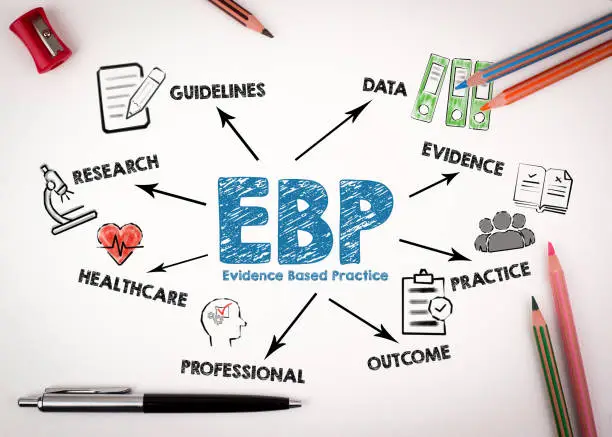Evidence-Based Practice (EBP) is a systematic approach to decision-making in fields like healthcare, education, and social work, where interventions or practices are guided by the best available research evidence. EBP prioritizes using high-quality, peer-reviewed studies, such as randomized controlled trials (RCTs), systematic reviews, and meta-analyses, to inform practice. The goal is to ensure that decisions are based on solid scientific evidence, which ideally leads to better outcomes for individuals or communities.
Key components of EBP include:
- Best Available Evidence: The use of robust, well-designed research studies.
- Clinical Expertise: The practitioner’s skill and judgment.
- Patient Preferences: Considering the needs and preferences of the individual receiving care or service.
However, Practice-Based Evidence (PBE) offers a complementary perspective. PBE focuses on the knowledge and insights derived from real-world practice, as opposed to research-generated evidence. It draws from the experiences, observations, and outcomes of practitioners in their day-to-day work. In this approach, practitioners gather and analyze data from their own practice, often in settings where controlled research is impractical. PBE emphasizes the importance of local context and individual differences, as it reflects the variability and complexity of real-world situations.
The main differences between EBP and PBE are:
- Source of Evidence: EBP relies on external, research-derived evidence, while PBE emphasizes data and experiences from the practitioner’s direct practice.
- Scope: EBP may overlook unique local contexts, whereas PBE allows for customization and adaptation based on the specific needs and characteristics of clients or settings.
- Usefulness: EBP provides broader generalizable evidence, but PBE offers insights into what works in practice, especially in areas where controlled research is limited or impractical.
In sum, EBP and PBE are complementary; while EBP provides a strong foundation based on research, PBE grounds practice in real-world outcomes and practical realities. Integrating both can lead to more effective, tailored, and responsive practices.




0 Comments